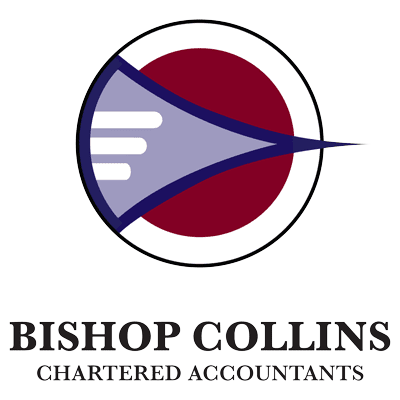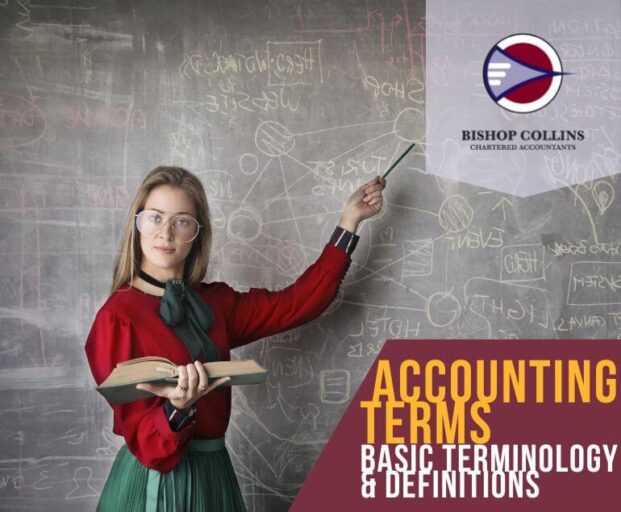Like many professionals, accountants love our acronyms and terminology. Not necessarily because we want to impress our clients or others more, but rather it becomes a habit stemming from internal conversations with our colleagues. Unfortunately, at times in our enthusiasm to educate our clients and support them with their financial affairs we may get carried away with terminology unfamiliar to them! Often our clients are too polite to request we clarify our jargon filled statements.
While this accounting terminology is often spoken while trying to do right by our clients it is equally important our clients clearly understand these accounting terms and our advice given to them. To help you to learn the lingo, below are some of the most used terms and acronyms in the accounting vocabulary.
Hopefully having a better understanding of this terminology will not only help your discussions with your financial advisors but enable you to have a more comprehensive understanding of your business and financial affairs
 The Accounting Terms You Need to Know
The Accounting Terms You Need to Know
EOFY – End of Financial Year
Personally, this one is my favourite and probably one of the most important terms you will hear your accountant use. There are many critical actions required in your personal and business financial affairs before the end of each financial year. These are time sensitive items which cannot be actioned at a later date. Typically, these will relate to important tax planning strategies. As a result EOFY, is typically the busiest time of year for accounts and tax advisors.
On Revenue Account
This relates to both income and expenditure which is of a recurring nature. Regarding income, this would include sale of goods and services, interest, rental income and dividends received. On the expenditure side examples would include stock purchases, equipment maintenance salaries wages etc.
On Capital Account
This relates to both income and expenditure which is a one off or not recurring in nature. for example, this may include a capital gain on the sale of an investment property or an improvement to an investment property such as a renovation.
Insolvent
Technically this means being unable to pay your debts as and when they fall due for payment and is generally assessed at a point in time. Insolvency is often difficult to detect as it is approaching and usually only identified with the benefit of hindsight. In the words of Ernest Hemingway, when his character Mike was asked “how did you go bankrupt?” He responds with “gradually, then suddenly.”
 Current v Non-Current
Current v Non-Current
Assets and liabilities of a business or company may either be current or non-current. A current asset is one which can be converted to cash within the next 12 months. A current liability is one which is due and payable within the next 12 months. Non-current assets and liabilities are therefore ones which extend beyond the 12-month period. This is a very important distinction particularly in relation to the solvency of a business or company. If your current liabilities exceed your current assets it is possible, without other financial support, that you may not be able to pay all of your creditors and the business may be insolvent.
Net Profit
This represents the residual amount after deducting all expenses from revenue. It is one of the key indicators of the viability of a business. It also is the foundation for calculating the cash flow of any particular business, the net profit adjusted for non-cash items will show the net cash flow of a business.
EBITDA – Earnings Before Interest, Taxes, Depreciation and Amortisation
Yep, it’s a mouthful which is exactly why we abbreviate it! Like net profit this is an indicator of the viability and solvency of a particular business. It is a key financial metric often used to form the basis of a valuation of a particular business and excludes items which may not be relevant to the purchaser.
Equity
This is usually used as a proxy for the “net worth” of a business or a particular asset. In a business setting this would most commonly be used in relation to the net worth of a company. The equity of a company is generally made up of issued share capital, retained profits and reserves. In a personal investment situation this term will most commonly be used in relation to a specific investment i.e. “I have $200,000 equity in my investment property”.
 Sunk Costs
Sunk Costs
This is a very important concept to understand particularly when considering an ongoing investment strategy. Sunk costs refer to an amount already spent regarding a particular investment or project and these amounts are unlikely to be recovered. The problem arises where people continue to invest money in a business investment or other projects which may not be viable, but they feel compelled to do so as they have already invested a significant amount of time or money. This being the sunk costs. The higher the sunk costs the more it may skew the decision-making process leading to poor investment and business decisions.
Intangible Assets
This is a broad category of assets and is simply defined as all assets other than tangible assets. There are numerous types of intangible assets in a business setting. Some of the most frequent intangible assets include goodwill, trademarks, patents, copyright, and other intellectual property. Intangible assets are inherently difficult to value. This situation will typically arise where someone is looking to sell their business and needs to determine a market value.
CGT – Capital Gains Tax
Unfortunately, this is an acronym I find myself using often to the frustration of my clients. I get partway through a conversation with my clients, and they will ask what is CGT? Capital gains tax is usually applied to the disposal of investment assets acquired after September 1985. The gain made on the disposal of these assets will be included in the assessable income of a taxpayer. There are significant exemptions and concessions which may be accessed when determining if CGT is applicable.
Bishop Collins Are Your Accounting Experts!
As I hope you can see from this terminology guide, accounting can be an incredibly complex thing to fully understand! That’s why it is imperative that you seek professional advice to make sure you get on top of your finances, and more importantly stay on top!.
Please reach out to us at Bishop Collins if you want to talk to the experts about your personal and business accounting needs!





 The Accounting Terms You Need to Know
The Accounting Terms You Need to Know Current v Non-Current
Current v Non-Current Sunk Costs
Sunk Costs